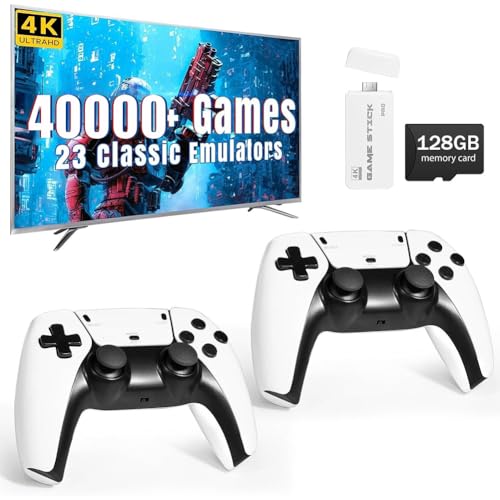Understanding Gaming Consoles: What We Need to Know
What is a Gaming Console?
A gaming console is a device designed specifically for playing video games. Unlike a standard computer, consoles often come with pre-installed hardware and software optimised for gaming. This means when we purchase a console, we get a product that is geared towards delivering the best gaming experience without the complexities of setting up a PC.
How Do Gaming Consoles Work?
Gaming consoles connect to our television or monitor and allow us to engage in immersive gaming through controllers. They run video games from discs, downloadable content, or cloud-based services. The beauty of consoles lies in their ease of use; we simply plug them in, turn them on, and the gaming world is at our fingertips.
The Appeal of Gaming Consoles
For many, gaming consoles provide a social experience. We can easily invite friends over or play online with others. The shared enjoyment of gaming brings people together, whether it’s a competitive session or cooperative gameplay. Furthermore, the exclusive titles and unique gaming experiences offered by consoles often make them more desirable for certain gamers.
Types of Gaming Consoles: Which One Suits You?
Home Consoles
Home consoles, like the PlayStation or Xbox, are designed to be connected to a television. They offer powerful hardware, support for extensive libraries of games, and often come with multimedia capabilities, such as streaming services for movies and TV shows. If we’re looking for a robust gaming experience and enjoy high-resolution graphics, a home console might be the right choice.
Portable Consoles
Portable consoles, such as the Nintendo Switch, provide gaming on the go. They’re perfect for users who travel frequently or prefer gaming in different locations, like a park or a friend’s house. These devices typically have a smaller game library compared to home consoles but often include exclusive titles that are designed for portable play.
Hybrid Consoles
Hybrid consoles combine elements of both home and portable consoles. The Nintendo Switch is a prime example, allowing us to play games on our TV or as a handheld device. If flexibility is what we seek in gaming, a hybrid console can offer the perfect solution.
Key Features to Consider When Buying a Gaming Console
Game Library
One of the first things we should look at is the available game library. Different consoles have exclusive titles that can influence our decision. If there’s a particular game we’re excited to play, it’s crucial to check which console offers it.
Performance and Graphics
Performance measures how fast the console runs games and the quality of visuals. We should consider the graphics capabilities, load times, and overall performance of the console, ensuring that it meets our expectations for the gaming experience.
Online Services and Features
Most consoles offer online services that provide access to multiplayer, downloadable games, and additional content. Understanding the system’s online features will give us a better idea of how we can engage with our friends and the wider gaming community.
Getting the Most Out of Your Gaming Console: Accessories and Add-ons
Essential Accessories
To enhance our gaming experience, we can consider purchasing accessories like additional controllers, headsets for communication during online play, or charging stations for controllers. These items can significantly improve both solo and multiplayer gaming sessions.
Optional Enhancements
For those looking to immerse themselves in gaming further, options like high-quality gaming chairs or VR headsets can elevate our experience. Investing in good accessories not only enhances comfort but might also offer better control and sound quality, which can significantly improve gaming.
Games and Subscriptions
Additionally, subscribing to gaming services can give us access to a broader range of games at a lower cost over time. Knowing which services complement our console can ensure we’re making the most out of our gaming library.
Budgeting for Your Gaming Console: What to Expect for Your Investment
Initial Costs
The upfront cost of a gaming console can vary widely depending on the model we choose. Home consoles often cost more than portable ones, but it’s essential to factor in what comes in the box, like bundled games or additional accessories which can affect our overall spend.
Ongoing Expenses
Beyond the initial purchase, we should anticipate ongoing costs such as buying games, subscriptions for online services, and any additional accessories. Games can range from affordable to premium prices, so budgeting accordingly will help us stay within our financial limits.
Future Considerations
As technology evolves, consoles may need to be updated or replaced. Keeping an eye on upcoming releases and trends can help us plan for our next gaming investment and ensure we get the best value for our money.












